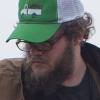Could Unschools Be the Answer to High-Stakes, High-Stress Education?

Lara Smothers teaches a class at Freedom to Grow.
Freedom to Grow Unschool cannot call itself a school.
Officially, it’s a “learning center for homeschoolers,” director Lora Smothers says, when people ask if it’s accredited. “The answer is no. We’re just a business offering educational services to families of homeschoolers.”
But semantics don’t keep people away. “It gives the power back to the parents to be the final say in their kids’ education,” Smothers says. “I think that’s my favorite part of what I do—just reminding parents that they know what’s best for their kids. ‘Cause a lot of them are so frustrated with how the public school system is working now.”
“Unschool” can mean a lot of things. “Unschooling is actually a worldwide movement of people who have decided to let their kids take the lead in their education,” Smothers says. “There’s a broad range of what that can look like.”
Everyone has an opinion about "Our Failing Schools"—whether they're really failing or not. Some educators have found solutions by just abandoning traditional ideas about education. Whether your kids want to fidget freely, learn art from robots or just not do the school thing at all, there is probably something for them. (If you can afford it—tuition at these schools is in the $5,000–$7,000 neighborhood, though Athens Montessori School offers scholarships, and Freedom to Grow has ambitions to become more accessible through grants and scholarships.)
Freedom to Grow
Whereas some unschools are completely hands-off, and others are closer to curriculum-based home-schooling, Freedom to Grow falls somewhere in the middle.
The school (or not) began in 2010 with nine students under founder Terri Cole-Smith. Smothers taught neuroscience on Fridays as a graduate intern before becoming director in 2012. The staff now consists of Smothers, a child-safety advisor and two other mentors.
“We decided the word ‘teacher’ wasn’t exactly functional for us, because we do so much learning from the kids, and we function as playmates and mentors and coaches a lot of times,” Smothers says.
The Freedom to Grow philosophy is based on the assumption that children are self-motivated and have ideas worth pursuing. The learning center serves about 20 students, ages 5–12, but doesn’t acknowledge grade levels. Instead, learning happens in one large group. Certain times of the day are designated for the study of specific topics, like math or reading, but the kids also spend time working on independent and group projects they have chosen.
“I think it really helps kids who either would be considered behind in a certain area or who excel not to feel so weird,” Smothers says. “We acknowledge that everybody has different gifts and that we’re all in different stages. I think it removes a lot of the stigma kids experience in school.”
School only happens during school hours. “One of our biggest selling points is that we don’t do tests or grades or homework,” Smothers says. “Which is a big deal to a lot of families who come and are just tired of the stress, of every evening trying to force the kids to do their homework, and they don’t wanna do it, and it takes up all their time. When families come, they say, ‘Oh, we have our evenings back. We have our weekends back.'”
Smothers doesn’t see traditional schooling as some great evil. “I think that the idea of public education is necessary,” she says. “I think it’s core to our country’s values, that everyone has the right to an education no matter where you come from. But in the execution of that plan, things get really difficult.”
For one thing, schools are too big and often lack resources. “It isn’t really possible to create the individualized experience that each kid needs,” she says. “And that’s no fault of any teacher or administrator. I think there are a lot of people in school who have really high expectations of kids, but they can’t do everything that they would want to do to help kids reach those goals.”
The other problem, she says, is the national emphasis on standardized testing. “The fact that there’s so much money wrapped in the testing, to the point where administrators, and then teachers, and then their parapros, and then the students all feel the pressure of it,” she says. “I think that pressure and that stress is totally antithetical to creativity and taking risks and just being yourself, a lot of the time.”
Athens Montessori School
Montessori academies exist around the world across class, race and social strata and have for more than a century. Italian physician and educator Maria Montessori, whose philosophy was "Follow the child," started the first in 1907.
This means educating is more than teaching; it is observing and nurturing. “Montessori is based on the philosophy that children develop themselves,” director Warren McPherson says. “That is, they have a natural plan of development that unfolds from within. It’s a developmentally centered, not curriculum-centered, method of education.”
McPherson co-founded the school with his wife, LaVonne, in 1978. What began as a class of 28 in a rented classroom has since grown into seven buildings, 10 gardens, three solar panels and 280 students. The school educates children from ages 3–15 in 10 classes determined by age range: 3–6, 7–9, 10–12 and middle school. The idea is that children learn individually, but within a community. “They have a highly enriched and highly structured environment in which children can develop their interests and develop their skills at their own rate,” McPherson says. “And so each child can move ahead at their own rate without being unfairly compared with other children.”
Like Freedom to Grow, Athens Montessori does not issue homework, tests or grades, with the exception of one annual exam that is used to teach children test-taking skills. “Montessori de-emphasizes competition, rewards and punishments,” McPherson says. “It does not use rewards and punishments as incentives for learning. Montessori believes that children are natural explorers and natural learners.”
McPherson cites testing mania as a major detriment of conventional education. “I think the high-stakes testing culture is misguided,” he says. “I think that there are many fine public school teachers. There are many dedicated people. But I feel that they are constrained unduly by the hyper-emphasis on testing.”
Some critics worry that children reared in this environment might not be prepared for adulthood. “Everyone says, ‘Oh, but it’s a competitive world. They’re not gonna be ready,’” McPherson says. “But again, you follow the developmental nature of the child. Yes, they will enter a competitive world, and they’ll actually be much more holistically formed.”
Double Helix STEAM Academy
STEM has been an educational buzzword for a few years now. Worshippers of the acronym extol the benefits of emphasizing science, technology, engineering and math in schools. Well, Athens now has its first STEAM school—all of those fields, plus art.
“Most people know STEM—art is kind of a newer push for it,” says Double Helix STEAM Academy director Karen Gerow.
Gerow worked in a primary school in a nearby county until she was fired, she says, for speaking out against the standards movement and what she saw as unhealthy teaching methods.
“My experience is that kids learn best by doing,” Gerow says. “Most people learn best by doing, not just kids. And when I first started teaching, that was easy to do; everything could be really project-based.” But as time went by, the politics of public education created a too rigorously structured environment. “It seemed like you do math for 45 minutes, then you do language arts for 45 minutes, and then you do science for 45 minutes,” she says. “And there was never any acknowledgement of how these blend together in real life and how intertwined they really are.”
Double Helix teaches children from 4th–8th grade but measures students’ learning by individual progress rather than a set standard. Rather than following a stiff curriculum that separates the disciplines, the kids choose a single topic for study then attack it from the angles of science, tech, engineering, art and math. “STEAM kind of recognizes the interplay between all the subjects,” Gerow says.
Gerow and Desiree Sharpe are the only full-time teachers at Double Helix, but they pull the community into the classroom. Local artist Hope Hilton teaches art classes once a week, UGA doctoral student Lucas Jensen teaches music, and the kids descend regularly on Good Dirt for pottery classes. Recent class projects include developing a smartphone app, designing Lego robots and creating a class website.
Kids at Double Helix don’t have to deal with homework, but they do take tests. Still, testing at the STEAM academy is different from public schools; it serves for the teachers to evaluate themselves, not to place a number on children’s capabilities. Parents can opt their kids out, and Gerow promises not to teach to tests or overemphasize their results.
A major failing of public schools, Gerow says, is how curricula approach art. “I think the arts are no longer valued for their own sake,” she says. “A lot of what I see is seeing how the arts are used to support other standards…[art] has to be linked to one of the more rigorous subjects in order to be valued. It feels to me like we’ve lost the purpose of what art does. Art has so much in its own right that’s valuable, and we need to honor that.”
And, she says, traditional education lacks a mechanism for children to learn through failure. “I think it’s important that kids experience it and learn from it,” she says. “There’s no opportunity to experience failure and then revisit something. I think that’s how we learn, and that’s how real math is.”
Double Helix opened for its first full school year in August. But Gerow hopes to expand to include more students and grade levels in the future. “We don’t have any entrance requirements, though, which is different from other private schools,” Gerow says. “I think that public school teacher part of me will always be there—that I’ll take anybody who can come.”
Homeschooling
None of Shannon Martinez’s six children have ever gone to school. They started as typical homeschoolers with a strict curriculum. They had assignments, deadlines, the works; but by the time the oldest had turned 10, it all became too much.
"I wanted all of my kids to have the freedom to discover and be whoever they were in a place that felt safe and nurturing," Martinez says. "So being stressed and fighting about getting their schoolwork done was contrary to that whole idea.”
So they took a year off. One year without school, and they would pick up where they’d been. But at the end of that year, Martinez found her children had already moved on. “I looked at the oldest three, and they had all kept learning,” she says. “They had all progressed in their reading and writing and math and everything without us doing anything at all for any kind of formal schooling.”
So Martinez decided her children would learn without structure, stress or limitations; that is how they became, simply put, complete unschoolers. “I hate to even use that term, because it’s so formal,” she says. “I’m like, ‘We’re at home during school hours. Or off doing something else.’”
Martinez’s family learns experientially. Her kids investigate things that interest them and learn skills they find they need. One of her daughters learned spelling from spell-check on various blogs, and another daughter decided to improve those skills as social media became a bigger part of her life. Her 7-year-old son recently began reading—and she isn’t concerned. “Little boys tend to learn to read and write later if left to their own devices,” she says. “For me it’s always, ‘Are you progressing? Are you progressing in regards to yourself?’”
Seventeen-year-old Tim Foley, her oldest son, says he loves science, film, literature and music composition, but those aren’t the only things he studies. “Stuff like math and history, I’m not inclined to learn them,” he says. “But I do sort of place pressure on myself to learn them, because on an intellectual level, I think that it’s important, and I think those are things that I should learn. So I do.”
It’s easy to learn these days, Foley says. Anything he wants to know is seconds away on a computer or smartphone. But while this makes self-guided learning easier than ever, it also undermines the assumption that traditional education structures are the most effective.
“Schools can no longer claim, ‘Well, this is the only place where you will be able to get knowledge. So you have to come here for it, and we will give it to you on our own terms,’” he says. “They don’t have that anymore, because you can get knowledge anywhere, at any time. It’s the most convenient thing in the world. And so it’s more important to be motivated and to have self-motivation.”
Yet, Martinez adds, increasingly antiquated teaching methods and measures of progress remain the standard. “We live in a time and a place where all of the information of all time is available at the swipe of a thumb,” she says. “Which is a wonderful, amazing, marvelous thing."
Tests and rote learning increasingly lack meaning. “Requiring more and more testing, so that kids are required to regurgitate more and more material, actually seems to diminish their ability to develop critical thinking skills, which are way more needed now than ever,” Martinez says.
Martinez sometimes substitute-teaches in Clarke County schools. And her problem isn’t public education—at least, not the idea of it—but she thinks public schools are run more like businesses, and they've lost sight of what matters most: the children. “I absolutely, wholeheartedly believe in and support a universal free education for everyone,” she says. “I feel like it is a fundamental tenet of living in a democracy and having a truly enlightened people. However, I feel like children have been very underestimated in their desire to be curious, to have strengths and talents that they know about themselves.”
Martinez measures her children’s academic progress individually, but the emphasis is not on what she calls "meaningless" achievement. “I feel like our culture is very, very oriented towards being achievement addicts,” she says. “It’s all status. An A is just a status, just like a Mercedes is a status or a BMW is a status. We strive for outward markers of success that give us a sense of worth, instead of believing inherently from the get-go that we have inherent worth and value.”
Foley is the same age as your typical high school senior. He’d like to become a professional musician, but he’s knows there’s no guarantee that will work out. College is on the table, but it's just one option. “And there might be something that I discover within the next couple years that I want to do even more than that,” he says. “But I don’t know. And it doesn’t really seem to me like right at this moment I should know—or should have to know, that is. I don’t think right after you turn 17 you need to have your entire life figured out.”
For Martinez, her dreams for her kids aren’t about careers or income brackets; the most important thing, she says, is their sense of self, self-love and engagement in the world around them. “My biggest hope for my children is for them to just be vibrantly alive,” she says.













comments